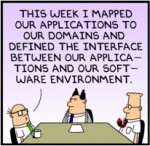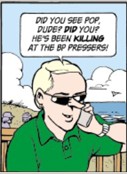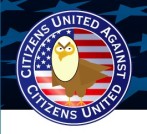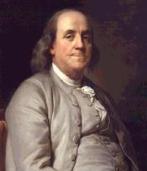Like Lincoln, Jefferson, Madison – Americans Fear Corporate Control of Public Policy (Updated)
[Editor’s note: I wrote this piece two years ago just after the terrible SCOTUS decision in Citizens United. I’m re posting it today in order to include the excellent video by Thom Hartmann “The Truth About the Original Tea Party” Bob Higgins] Updated (originally posted 2/17/10)
The Washington Post’s Dan Eggen reports this morning on the results of a WaPo/ABC News poll which shows Americans to be “overwhelmingly” opposed to the recent SCOTUS decision to allow corporations to spend unlimited amounts of cash in election campaigns.
“Eight in 10 poll respondents say they oppose the high court’s Jan. 21 decision to allow unfettered corporate political spending, with 65 percent “strongly” opposed. Nearly as many backed congressional action to curb the ruling, with 72 percent in favor of reinstating limits. The poll reveals relatively little difference of opinion on the issue among Democrats (85 percent opposed to the ruling), Republicans (76 percent) and independents (81 percent).”
Americans have always been distrustful of corporations and their ability to exercise power and control over public affairs.
Ever since Elizabeth I created the East India Company in 1600, corporations have been a pain in the public neck. Her royal act to protect the monetary interests of wealthy members of her court, parliament and herself created a company that would, over the course of two centuries, grow in power to rival many of the worlds nation states.
A legal fiction, corporations exist solely to protect the oligarchy from the results of their risky behavior in the search for ever greater profit. Incorporate and pass the risk on to someone else, creditors, taxpayers, anyone but those involved in the scheme itself.
Businessmen of the time, as today, were and are, infinitely more comfortable operating in an environment devoid of risk to their profits, unless of course they are operating on someone else’s money, (taxpayers) in which case nearly any risk can be accepted; “it’s public money, double down and toss the dice boys.”
Corporate Personhood versus Democracy
[Editor’s note: The Supreme Court decision in Citizens United was the worst decision by the court since those of Dred Scott v. Sandford and Santa Clara County v. Southern Pacific Railroad Company, the latter of which established the ridiculous idea of corporate person-hood in US law. The origins of corporate person-hood are explored in the excellent essay linked below from William Myers. Bob Higgins]
The Santa Clara Blues: Corporate Personhood versus Democracy
By William Meyers
What Corporate Personhood Is
Corporate Personhood is a legal fiction. The choice of the word “person” arises from the way the 14th Amendment to the U.S. Constitution was worded and from earlier legal usage of the word person. A corporation is an artificial entity, created by the granting of a charter by a government that grants such charters. Corporation in this essay will be confined to businesses run for profit that have been granted corporate charters by the States of the United States. The Federal Government of the United States usually does not grant corporate charters to businesses (exceptions include the Post Office and Amtrak).
Corporations are artificial entities owned by stockholders, who may be humans or other corporations. They are required by law to have officers and a board of directors (in small corporations these may all be the same people). In effect the corporation is a collective of individuals with a special legal status and privileges not given to ordinary unincorporated businesses or groups of individuals.
Obviously a corporation is itself no more a person (though it is owned and staffed by persons) than a locomotive or a mob. So why, in the USA, is a corporation considered to be a person under law?
Corporate personhood is the idea (legal fiction, currently with force of law) that corporations have inalienable rights (sometimes called constitutional rights) just like real, natural, human persons.
That this idea has the force of law both resulted from the power and wealth of the class of people who owned corporations, and resulted in their even greater power and wealth. Corporate constitutional rights effectively invert the relationship between the government and the corporations. Recognized as persons, corporations lose much of their status as subjects of the government. Although artificial creations of their owners and the governments, as legal persons they have a degree of immunity to government supervision. Endowed with the court-recognized right to influence both elections and the law-making process, corporations now dominate not just the U. S. economy, but the government itself.
Read more The Santa Clara Blues: Corporate Personhood versus Democracy by William Meyers.
Tea Party: “Is There a Difference Between Cinco de Mayo and Chinese New Year”?
Fight Citizens United by Filtering Out False Political Advertising
The mid term elections of 2010 have been memorable for sheer goofiness as well as for the corporate funded blanket of ugly, false and misleading political advertising that has been lowered over the public airwaves. With the addition of a mountainous heap of money provided by greedy plutocrats, election cycles have become national holidays from reason and sanity that fall between their mates, Halloween and Thanksgiving.
I have little trouble tuning out most of this detestable crud, knowing as I do that it’s filled with half truths, distortions and bold faced lies. In this sense the supreme court’s licensing of corporate political advertising in campaign ads is little different from the every day advertising for goods and services that absorb a large percentage of air time on nearly every channel.
I’m not a believer, I don’t buy disposable mop heads that promise to revolutionize my life, or small sheets of fabric to place in the dryer to protect myself from static cling. The hundreds of millions that corporate America is spending on this election is wasted on me and on anyone else who doesn’t believe that signing up for a “free” credit report will improve your credit or that tax protection and relief ads which promise to negotiate with the IRS will actually do anything but empty your pockets more efficiently. (more…)
Citizens United: Before, After, What’s Next?
Citizens United: Before, After, What’s Next?

Supreme Court reacts to President Obama's mention of the Citizens United case at the State of the Union Address
By Lisa Rosenberg, Sunlight Foundation Blog
The Citizens United case was a game changer in terms of money being spent by outside groups on the 2010 elections—but the question is, how much? This primer (included below) provides a detailed explanation of the before and after, and also includes Sunlight’s policy recommendations for new disclosures needed to ensure that that the midterms don’t become a practice run for even more massive spending in 2012. It’s complicated, but boiled down to its essentials, the key points are these:
• Before Citizens United, if a corporation or labor union wanted to make an independent expenditure—an ad expressly calling for the election or defeat of a specific candidate—it was prohibited from using money from its general treasury. It had to use limited voluntary contributions from its PAC. (more…)





















leave a comment